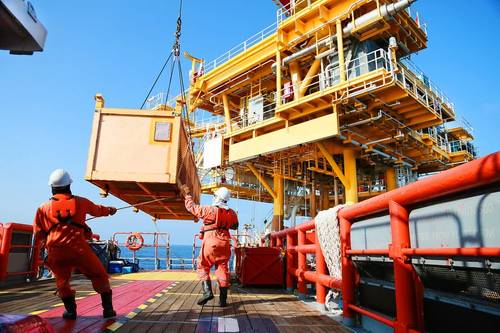Uncertainty Reduces New Oil and Gas Investment
Several news items this week highlight the potential consequences of uncertainty in the energy market.
Fugro scrapped its annual outlook and announced further job cuts, citing an impact from project delays. The company said that projects in the offshore wind and oil and gas markets would be delayed into 2026 and their scope cut back, resulting in an estimated 100 million euros ($117.5 million) impact on its revenue.
"The previously anticipated 20% revenue growth is no longer realistic," Fugro said, adding it saw the most significant impact in the oil and gas market, along with further softening of sentiment in offshore wind.
Meanwhile, a U.S. judge ruled that Orsted can restart work on the nearly finished Revolution Wind project after President Donald Trump's administration halted the project last month. The halt had been costing developers more than $2 million per day.
The effects of market uncertainty have been examined in a newly published study by researchers from the University of Oxford. They demonstrate a significant negative relationship between final investment decisions in oil and gas projects and of energy-related uncertainty and market-based climate policies such as carbon prices.
There’s a lot at stake. If climate action accelerates, demand for oil and gas will fall, potentially causing an estimated $1 trillion worth of stranded assets.
The researchers evaluated projects on a company and country level and considered the number of years between discovery and development using data that spanned 1990-2022.
The negative relationship between uncertainty and investment in new assets was significant, and it amplified the negative relationship found between climate policy and investment.
Strengthening market-based policies is therefore considered an effective tool for curtailing fossil fuel investment.
For policy makers looking to boost oil and gas investment, the researchers say their results highlight the importance of minimizing uncertainty.
“Consistent and clear policy signals could enable oil and gas companies to correctly adjust strategies in anticipation of changes in demand. For example, governments can disclose forward-looking sectorial transition plans, providing firms with information on how carbon-intensive sectors such as transport and industry will decarbonize.”
ExxonMobil provided an example of that this week as it made a final investment decision for the Hammerhead development offshore Guyana. President of ExxonMobil Upstream Company Dan Ammann, said: “In collaboration with the people and government of Guyana, we’ve helped build a thriving new oil and gas industry in the country that is creating jobs, supplier opportunities, profits, and follow-on investments.”
















 February 2026
February 2026



